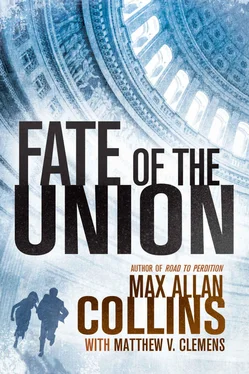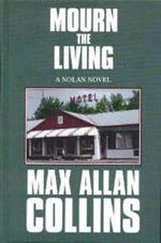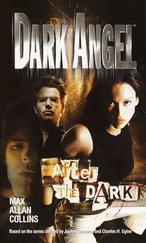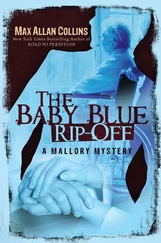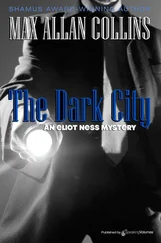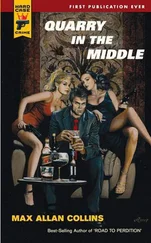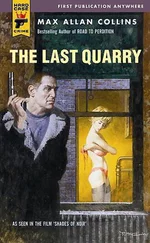Bobby looked up at her like she’d slapped him. He just sat there, eyes wide and welling, mouth hanging slackly open.
She’d seen that look on her father’s face when she watched secretly from the stairs that time, back when she was in junior high, when her mother had said much the same thing to him. Was she channeling her mother now? The woman she’d resented for being so tough on Daddy?
She sat next to Bobby. “See what happens,” she said gently, “when worlds collide?” Then jokingly, “Card-carrying pod person like you should know that.”
He said nothing, wearing the hurt like a drink she’d tossed in his face, dripping there.
“Baby,” she said, “that came out really nasty. I’m sorry.”
She kissed his cheek. At least he didn’t pull away.
Then he said, “No apologies, sweetheart. Got what I deserved. I started in on you and it was unfair and I was a prick.”
“Like I said,” she said, no venom in her voice at all now, quite the opposite, “finally we agree...”
She kissed him on the mouth and it was sweet and then some urgency came in. Then they were in each other’s arms, making out like the overage immature kids that they were, the blowup over as quickly as it began.
Bobby’s hands starting roving, then tugging at her clothes, and her cell phone vibrated on the nearby coffee table, hopping around for attention like a child in its crib, wondering what strangeness its parents were up to.
“Shit,” she said.
He was unbuttoning her blouse. “Ignore it.”
“Could be work,” she said, already pulling away.
“They’ll leave a message,” he tried. “It can wait a few minutes...”
She said, not sharply, “Is that all the time you figure you need?”
He smiled, laughed a little, took the pressure off and she reached for the phone, getting it just before voice mail kicked in.
“Senator Hackbarth,” she said, having seen the caller ID. “What can I do for you, ma’am?”
The familiar businesslike alto: “Meet me tomorrow, breakfast. Seven a.m., Capitol restaurant.”
“I, uh, thought the restaurant didn’t open till eight thirty.”
“It doesn’t.”
That was all the explanation Amy’s boss gave — after all, rank has its privileges, and so does being a senator.
Hackbarth was saying, “Have you read the background material on the college-loan reform bill?”
“Yes,” Amy said, not adding, Some of it. So not technically a lie.
The senator continued: “And since this law could affect you and a good number of your friends, I’ll be eager to hear your opinion.”
“Yes, ma’am. Thank you, Senator.”
“ Informed opinion, Ms. Reeder.”
“Absolutely, yes, ma’am.”
The line clicked dead in her ear.
She turned slowly toward Bobby. He was already sitting up, and when he saw her face, he rose.
“I’m sorry,” she said.
“No more sorries tonight,” he said pleasantly, but there was just the faintest strain in it. “I’m gonna catch some TV. Check in when you get a chance.”
He went off toward the bedroom.
Allowing herself a plight-of-the-working-class sigh, she trudged to the dining room table, grabbed her new briefcase — a gift from Dad — and shambled back to the couch. In the bed where Bobby waited, it was doubtful the two would be able to get to their make-up sex, just as the notion of her getting any sleep at all was similarly unlikely.
Chances were, she’d be reading till dawn. Withdrawing the fat folder of material on the bill the senator wanted to be briefed on, Amy settled back into the couch.
Already it felt like a long night.
“I prefer peace. But if trouble must come, let it come in my time, so that my children can live in peace.”
Thomas Paine
Pulling out of the Holiday Inn Express in Falls Church, Joe Reeder turned his Prius toward another Virginia bedroom community, Fairfax Station, and the Bryson home. On the way, he hands-free phoned homicide detective Carl Bishop’s cell and got him in two rings.
“What have I done,” Bish said, over bullpen chatter, “to deserve a phone call from a celebrity?”
“Maybe it’s that lucky day you’ve heard so much about. Listen, do you guys have Bryson’s laptop? Or a home computer of his?”
“Not my case, Peep.”
“Yeah, I remember. I just thought maybe a sharp guy like you might pick something up around the shop.”
“Listen, I’m on my way out the door after a long damn day. Why don’t you skip the middleman and talk to the kid in charge?”
“Why not?”
Reeder heard Bishop calling out: “Woods! My famous friend wants to talk to you. Try not to get all tongue-tied.”
Soon a crisp tenor said, “Detective Woods, Mr. Reeder. What can I do for you?”
“Sounds like you don’t get any more respect out of Bish than I do.”
A light laugh. “I take it as a compliment. I assume you’re calling about that suicide. Bish mentioned you and Bryson were friends.”
“Yes — did he also tell you about the message Chris left me, that evening?”
“Yep. Wrote it down for me when you called it in, so I figured I didn’t need to bother you. Pretty straightforward — coroner isn’t requiring an inquest. Sorry for your loss — he was former Secret Service, too, I understand.”
“Yes. You mind a question or two, Detective?”
“No. But like I said—”
“Straightforward, right. Mind humoring me?”
Just the slightest pause. “What would you like to know?”
“Did you take a computer into evidence? Something you might have found in the motel room — a laptop, maybe? That’s what Chris used at work.”
“No. Really, a laptop? Who uses those anymore?”
“Dinosaurs like Chris Bryson.”
And me , Reeder thought.
“No laptop, Mr. Reeder. Or tablet, either.”
“Strike you as suspicious?”
“Not really. A man who checks into a motel room to kill himself doesn’t need a computer.”
“And it wasn’t in his car, either?”
“No. His wife and son picked up his stuff today, and didn’t ask where his laptop was, if he did have one. We did find a Nikon, but nothing on it. And we didn’t bring in the home computer, either, if that’s your next question.”
“Why not?”
“Mr. Reeder, this was a suicide, plain and simple.”
“Did it occur to you, Detective, that hanging yourself with a belt is not a ‘plain and simple’ way out when you’re a law enforcement professional with a weapon handy?”
“Suicides take all kinds of ways out.”
“No suicide note?”
“No. But you know that’s not unusual, either. I understand losing a friend can be tough—”
“Do I sound grief-stricken?”
“No, Mr. Reeder, you sound like a good friend in the same line of work who would rather not think that your friend might be capable of such a desperate act. This is nothing we haven’t seen before.”
“If you mean murder,” Reeder said, “I agree... Thanks for your time, Detective. We’ll talk again.”
And clicked off before the detective could respond.
Reeder had been to the Bryson home on Fairview Woods Avenue in Fairfax Station more than once, and drove there easily, no GPS required. He pulled into the empty driveway of the wide, two-story brick-fronted home with attached garage. The first-floor lights were on, Beth expecting him — he’d called ahead.
Taking his time going up the shoveled walk, Reeder moved through the sloping snow-covered lawn, past white-flocked bushes and curtained windows, then up three steps to the front stoop. Rang the doorbell, the sound of which had barely died away when the windowless steel door swung open. Christopher Bryson, suit coat off, sleeves rolled up, tie loosened, stood there looking enough like his father to make Reeder think, My God, have I gone back in time?
Читать дальше
